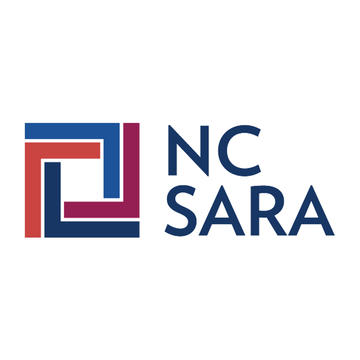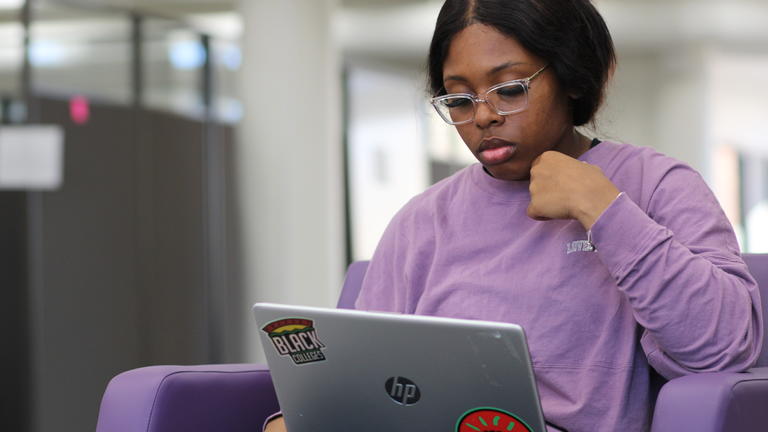
Student Complaint
Every student deserves a positive educational experience. Sometimes a student’s experience may not be what they anticipate, and the student may have a concern or a complaint.
SARA consumer protection provisions require the institution’s home state, through its SARA State Portal Entity, to investigate and resolve allegations of dishonest or fraudulent activity by the state’s SARA-participating institutions, including the provision of false or misleading information.
Miles College Online Education
Miles College Online Education offers 100% online programs in Business Administration, Criminal Justice, and Psychology.
Miles College Distance Learning Policies and Procedures Handbook
Online Resources
Student Identity Verification
An institution that offers distance and correspondence education: ensures that the student who registers in a distance or correspondence education course or program is the same student who
participates in and completes the course or program and receives the credit. Miles College ensures that the student who registers in a distance or correspondence education course is the same student who participates in, completes the course, and receives the credit through the following methods:
- Secure login and passcode;
- Online proctoring services through ProctorU, the leading vendor in the industry;
- Blackboard class rosters with students’ photos;
- Blackboard live audio and video of students interacting in the course.
Secure Login and Pass Code: The Miles College Student ID system is one method used by the College for authentication and a security measure to ensure that accounts are managed with the highest level of security possible. All Miles College students are provided identification numbers for secure access to College systems, including for distance learning. During the enrollment process, new students are provided their identification numbers after authentication by the Miles College Office of Admissions and Recruitment and the Miles College IT departments. This means that each student has the following unique information on record: social security number, full name; home address; and date of birth. With this identification number, a password, and a validated class schedule, each student is granted access to various campus systems and resources, such as Bears Den (to enroll in classes, check grades, transcripts, financial aid, etc.), Miles College Blackboard Learning Management System (LMS), email, Wi-Fi access, and library resources. Students are responsible for providing their complete and true identity information in any identification verification process. It is a violation of the Breaking and Entering/Theft section of the College’s Student Code of Conduct for students to share their passwords with other parties. Should students forget their identification numbers or need to change their passwords, they are required to call the Office of Admissions and Recruitment for their identification number, and Miles College IT for their e-mail account reset.
Online Proctoring Services: The second layer of authentication is provided through a service contract with ProctorU. ProctorU provides multi-factor identity authentication with
challenging questions, facial recognition, keystroke analysis, LMS login check, and photo ID check. ProctorU prevents academic integrity violations in online exams by using live proctors, as well as technology and reporting tools. Once a faculty member decides to have an exam proctored by ProctorU, each student must log-in to the ProctorU website. Each student can schedule a time to take the exam within the testing window pre-set by the faculty. On the day of the exam, the student connects to ProctorU to ensure that the connection between the student and the ProctorU system is working. Any technical problems are solved, and the student's computer is checked for basic technical requirements. Afterward, an instructional video is shown. The student will then display a government-issued picture identification to the webcam and also have their picture taken. The picture on the identification will be compared to the student using a combination of face recognition technology and the observation of the live proctor. The picture
was taken of the student, and the student's identification is stored for future authentication uses. In order to secure the testing area, the proctor asks the student to pan his/her camera to show the
complete workspace and surroundings. Finally, the proctor secures the virtual testing environment by checking for programs not allowed, virtual machines, and cloned monitors. The student must also close any prohibited software before starting the exam. The webcam will be used to monitor the student and the surroundings throughout the exam. At the completion of the exam, a report of all activities is sent to the faculty.
Class Rosters with Students’ Photos: The third layer of authentication is the feature within Blackboard Learn Learning Management System with which instructors are able to access class rosters that include student photos associated with their names and accounts. The Blackboard Learning Management System integrates with College authentication services to ensure appropriate and secure student access to courses and other Student Information Systems. All users of the College’s learning management system are responsible for maintaining the security of their identification numbers and passwords, or any other access credentials as required. Attempting to discover another user's password or attempting to gain unauthorized access to another person's files or email is prohibited and a violation of the Student Code of Conduct. This violation may result in one or a combination of the following: expulsion, suspension, and fine of not less than $100, probation, and/or community service.
Live Audio and Video of Students Interacting in the Course: Live audio and video of students
interacting in the course is also a feature of the Blackboard Learning Management System that
provides a fourth layer of authentication. The College protects the security, confidentiality, and integrity of student records and maintains security measures to protect and back up data, including students enrolled in distance and correspondence education courses or programs. Distance and correspondence student records are managed, maintained, and protected by the Office of the College Registrar and subject to the same privacy and confidentiality. Faculty members use different combinations of these authentication options based on their discipline assessment methods and learning outcomes. As technology and personal accountability are not absolute in determining a student’s identity, faculty members are encouraged to use these technologies and to design courses that use assignments and evaluations that support academic integrity. The table below shows various distance learning courses and the types of authentication options used in the different courses. Course faculty and the Office of Academic Records ensure the appropriate student receipt of credit. The faculty member enters the final grade using the Bear’s Den module, and the student receives credit for the course. Bear’s Den is an online portal used to view and manage student information. Credit for the course is posted on the student’s transcript at the end of the respective semester via the Office of Academic Records and the Bear’s Den module.
Miles College does not charge a fee for student identity verification. Students would be notified of additional fees, if any, prior to and during the registration process through various Miles College publications on the college website.
